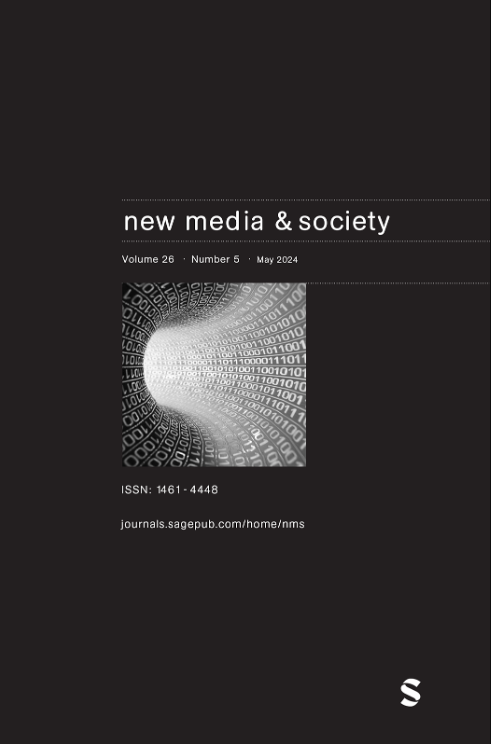The theoretical wedding of computational propaganda and information operations: Unraveling digital manipulation in conflict zones
IF 4.5
1区 文学
Q1 COMMUNICATION
引用次数: 0
Abstract
This study explores the theoretical fusion of computational propaganda and information operations in the Tigray war, centering on algorithmic manipulation techniques. Utilizing theoretical frameworks of agenda-setting theory, framing, and information ecology, the study formulates three hypotheses. Employing a multidisciplinary approach, it integrates qualitative and quantitative methods, leveraging tools such as Twitter API (X), twerc, NVivo, Botometer, and Rstat within the Netnographic method. The analysis reveals temporal dynamics of new account infiltrations on Twitter during war, emphasizing their engagement in hashtag campaigns for information/influence operations. A surge in new account creation coinciding with the war’s onset is identified, along with the strategic deployment of political bots within these accounts for algorithmic manipulation. The findings affirm that the theoretical intertwining of computational propaganda and information operations manifests through social media’s agenda-setting and framing effects. The study significantly contributes to the discourse on information warfare in contemporary conflicts by unraveling the intricate web of digital manipulation during the Tigray war.计算宣传和信息操作的理论结合:解开冲突地区的数字操纵
本研究以算法操纵技术为中心,探讨了提格雷战争中计算宣传与信息作战的理论融合。利用议程设置理论、框架理论和信息生态学的理论框架,本研究提出了三个假设。采用多学科方法,它集成了定性和定量方法,利用诸如Twitter API (X), twerc, NVivo, Botometer和Rstat等工具在Netnographic方法中。该分析揭示了战争期间Twitter新账户渗透的时间动态,强调了他们参与信息/影响行动的标签活动。与战争爆发同时出现的新账户数量激增,以及这些账户中用于算法操纵的政治机器人的战略部署。研究结果证实,计算宣传和信息操作的理论交织通过社交媒体的议程设置和框架效应表现出来。该研究通过揭示提格雷战争期间复杂的数字操纵网络,为当代冲突中的信息战话语做出了重大贡献。
本文章由计算机程序翻译,如有差异,请以英文原文为准。
求助全文
约1分钟内获得全文
求助全文
来源期刊

New Media & Society
COMMUNICATION-
CiteScore
12.70
自引率
8.00%
发文量
274
期刊介绍:
New Media & Society engages in critical discussions of the key issues arising from the scale and speed of new media development, drawing on a wide range of disciplinary perspectives and on both theoretical and empirical research. The journal includes contributions on: -the individual and the social, the cultural and the political dimensions of new media -the global and local dimensions of the relationship between media and social change -contemporary as well as historical developments -the implications and impacts of, as well as the determinants and obstacles to, media change the relationship between theory, policy and practice.
 求助内容:
求助内容: 应助结果提醒方式:
应助结果提醒方式:


